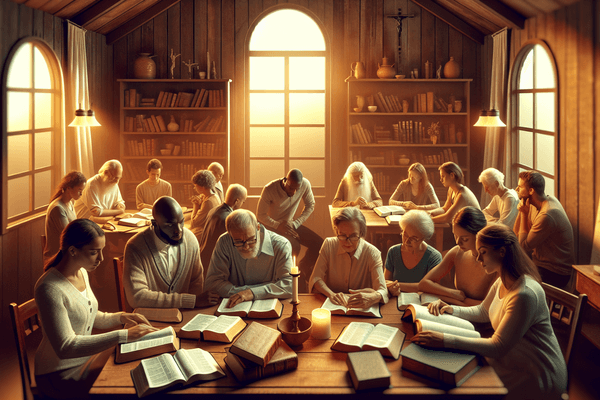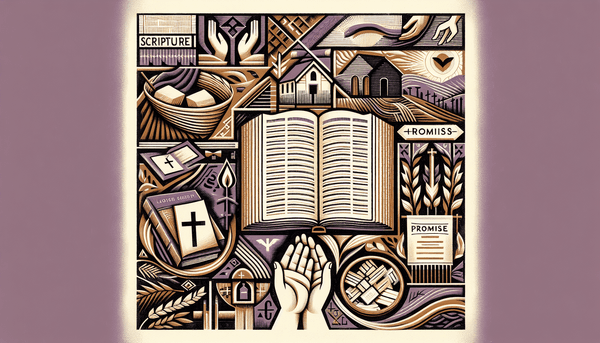Conducting the Lord’s Supper
The Lord's Supper, instituted by Jesus during the Last Supper, is a central rite of Christian worship. The Apostle Paul, in his first letter to the Corinthians, provides a detailed account of its significance and practice (1 Corinthians 11:23-26). Participants partake of the bread and the cup as symbols of Christ's body and blood, a poignant reminder of His sacrifice. This act of communion invites believers to reflect on the meaning of Jesus' death and to examine their hearts before partaking (Matthew 26:26-28). It is a time to remember the covenant established through Christ's blood, which offers forgiveness and reconciliation with God (Mark 14:22-24). As we break bread together, we acknowledge our unity as one body in Christ (1 Corinthians 10:16-17), and as Jesus instructed, we do so in remembrance of Him (Luke 22:19-20). The Lord's Supper is a profound expression of faith and fellowship, a testament to the enduring presence of Christ within His church.
FAQ
Q: Which verse refers to the importance of reconciliation before worship?
A: The verse is Matthew 5:23-24, which emphasizes the need to reconcile with your brother or sister before offering your gift at the altar.
Q: Does going to church matter if you have a problem with your neighbor?
A: Yes, attending church is important, but it is also vital to strive for peace and reconciliation with others, as indicated in Matthew 5:23-24.
Q: What can I greet my church with on Sabbath?
A: You can greet them with blessings of peace and joy, and a reminder of the Sabbath's sanctity, as mentioned in Exodus 20:8.
Q: How do you conduct the Lord's Supper at church?
A: The Lord's Supper should be conducted in remembrance of Jesus' sacrifice, as detailed by the Apostle Paul in 1 Corinthians 11:23-26, with participants partaking of the bread and the cup.






